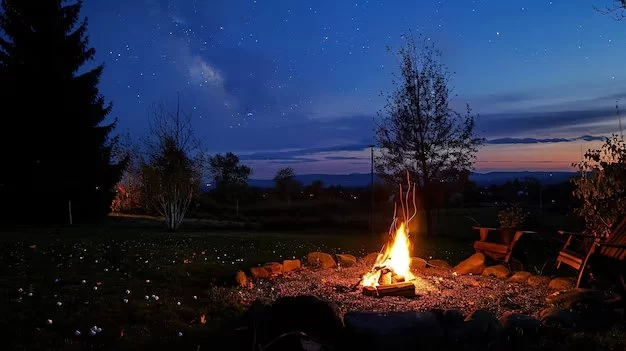Discover expert tips for finding the best campsite for solitary reflection, including location scouting, safety considerations, and real-life examples for a peaceful escape.

- #understanding—why-solitary-reflection-matters-in-camping
- #choosing—the-right-location-for-peace-and-privacy
- #assessing—environmental-and-safety-factors
- #real—life-stories-of-transformative-solo-camping-experiences
- #using—tools-and-resources-to-find-hidden-gems
- #how—pine-cliff-resort-can-help-you-plan-the-perfect-solo-retreat
Understanding Why Solitary Reflection Matters in Camping
In our fast-paced world, taking time for solitary reflection can be transformative. Camping away from the noise of everyday life offers a rare chance to slow down, connect with nature, and reset mentally. When you’re alone under the stars, every sound, scent, and sight becomes more vivid, allowing for a deeper connection to both the environment and yourself.
The emotional impact of solitude
Many campers describe solo trips as a form of meditation. The stillness of a quiet lakeshore or a mountain clearing allows your thoughts to settle, helping you gain perspective and recharge emotionally.
Choosing the Right Location for Peace and Privacy
One of the most important tips for finding the best campsite for solitary reflection is selecting a location that naturally supports your need for peace. This could be a remote forest clearing, a secluded riverside, or a high-altitude meadow with no visible trails nearby.
Distance from popular trails
Opt for campsites away from main hiking paths to avoid unexpected visitors. Remote spots might require a longer trek, but the trade-off is absolute quiet.
Assessing Environmental and Safety Factors
Solitude doesn’t mean ignoring safety. Consider weather conditions, wildlife presence, and emergency accessibility. The ideal solitary campsite strikes a balance between seclusion and reasonable safety precautions.
Pro tip
Research local regulations and carry basic safety gear, even if you’re familiar with the area. A peaceful retreat should also be a safe one.
Real-Life Stories of Transformative Solo Camping Experiences
Take Sarah, a teacher from Oregon, who camped for three nights in Alaska’s Wrangell-St. Elias National Park. With no cell service and only the sound of glacial rivers nearby, she returned home feeling more focused and creative than ever. Such stories highlight how the right campsite can have lasting mental benefits.
Why these trips resonate
The combination of isolation, natural beauty, and self-reliance creates an experience that’s both grounding and inspiring.
Using Tools and Resources to Find Hidden Gems
Today, digital tools make it easier to find secluded campsites without compromising safety. Apps, topographic maps, and park ranger advice can lead you to spots overlooked by the majority of campers.
Balancing secrecy and sustainability
While it’s tempting to keep your perfect spot a secret, sharing responsibly with like-minded nature lovers can help preserve and protect these areas for future visits.
How Pine Cliff Resort Can Help You Plan the Perfect Solo Retreat
Pine Cliff Resort offers guidance and resources for campers seeking the ultimate solitary reflection experience. Whether you need location suggestions, gear recommendations, or safety checklists, their expertise ensures your solo retreat is both peaceful and well-prepared.
From planning to packing
With the right preparation and location, your solitary camping trip can become a meaningful personal milestone—one you’ll carry with you long after you’ve packed up your tent.
Sandy Cove Beach Cabins
26 Tom King Blvd, Sandy Cove, NL A0G 1Z0, Canada
Visit Location PageLine Creek Campground
Shoshone County, ID 83802, USA
Visit Location Page